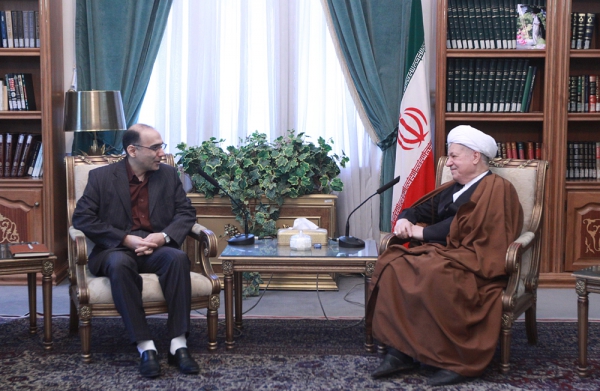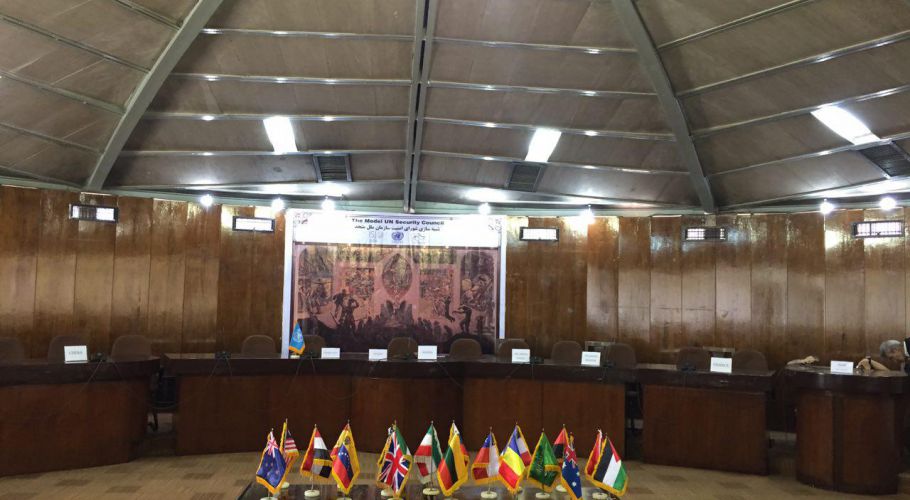In an interview with the International Studies Journal (ISJ), a three-monthly Iranian publication, at April of 2012, Rafsanjani stressed the importance of direct talks with the US, which he said was “a leading world power.”
The Chairman of the Expediency Discernment Council said that in a letter to Imam Khomeini, he had urged the late leader of the Islamic Republic to “resolve” seven outstanding issues while he was still alive, one of them being the poor state of US-Iranian relations.
“I wrote that our current approach, which is to not talk or have any ties, cannot continue. The US is the world’s leading power. What is the difference, in our view, between Europe and the US, or between China and the US, or between Russia and the US? If we negotiate with them why can’t we negotiate with the US? Holding talks doesn’t mean we’re surrendering.”
Commenting on Iran’s support for militant groups such as Hezbollah he argued that it was possible for Iran to aid “oppressed” peoples without being drawn into more conflicts with other nations. “If we were to act based only on our ideology, we shouldn’t have cooperated with atheist countries that reject God and spirituality. But now, we are closer to them.”
Rafsanjani added, “If we adopt the right policies in the world, there won’t be any conflict … there won’t be any problem with our financial assistance to them if we amend our ties with the world.” He said Iran’s support for these groups would be “defensible” as long as Iran did not use them to “pester” other states or indulge in “adventurism” around the world.
Rafsanjani defended Iran’s human rights record during his presidency and his administration’s collaboration with international human rights organisations.
“I believe that wherever we felt human rights were not being respected, we stood up against it … We tried to have the least number of prisoners. But there were cases that were out of our control … I’ve never been in favour of political imprisonments, especially when I was president … Closing down newspapers was a taboo for me, unless it was out of my control. During Mr Khatami’s presidency, a number of newspapers were shut down, even though the president did not want that. But there were other factors. We tried to keep religious and ethnic minorities pleased.”
The United Nations Human Rights Council recently renewed the mandate of Ahmed Shaheed, the UN Special Rapporteur on the human rights situation in Iran, for another year. In his second report, Shaheed documented a “striking pattern of violations of fundamental human rights” in the country and called for the government’s “meaningful cooperation” with the organisation’s human rights mechanisms. He also called on the Iranian judiciary to enforce a moratorium on the death penalty.
Rafsanjani was also asked about Iran’s cold relations with Saudi Arabia. He accused the Ahmadinejad government of being responsible for the downward trend in ties between the two countries and expressed concerns about the international oil embargo on Iran over its nuclear programme.
“Saudi officials are keen to have sensible relations with Iran and to cooperate with her,” he said. “If we had good relations with Saudi Arabia, would the West have been able to impose sanctions on us? Only Saudi Arabia can replace Iran [as an oil exporter] … If Saudi Arabia produces its [normal] share of OPEC output, no one can threaten us. Because the world economy cannot continue without our oil.”
He said there was still a chance for the two countries to improve relations. “But there are individuals here who don’t want this.”
“If we have warm relations with the countries of our region alone, Iran’s true power will be preserved in the region. The centre of Iran’s strength is in the region,” he continued.
When asked about the nuclear standoff with the West, Rafsanjani replied, “we really don’t have an intention to build nuclear weapons.”
“Once at a Friday prayer sermon, I even suggested to the [Israelis] that an atom bomb is not in their interest either. If there is a nuclear conflict some day, Israeli doesn’t have the capacity to withstand a nuclear bomb as it is a small country … [but] they [the Israelis] interpreted this advice as a threat.”
On Wednesday, Iraq’s Foreign Ministry announced that Iran had expressed its desire for Baghdad to host the upcoming talks over its nuclear programme. The last round of negotiations between Iran and the so-called P5+1 group (the five permanent members of the UN Security Council plus Germany) was held in Istanbul in January 2011 and ended in failure. Geneva hosted the round before that in late 2010.
Rafsanjani also criticised the Ahmadinejad government for its economic failures despite Iran’s record-high oil revenues.
“We shouldn’t be having problems. I think that with the vast oil revenues … having unemployment is very unusual. It’s only a question of management,” he further added

























